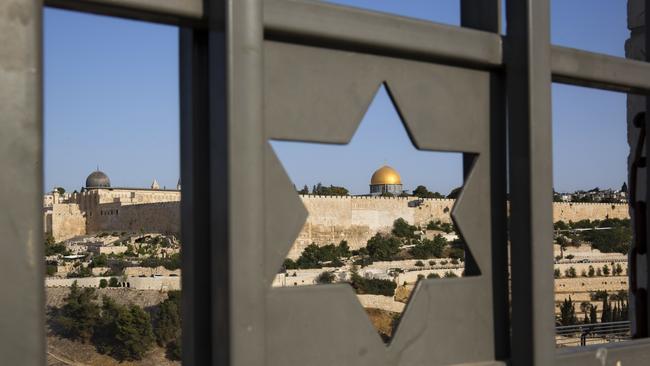
Seventy years ago, a clear majority of the world’s leaders believed in Israel’s right to exist as a home for the Jewish people.
How could it be otherwise?
More than six million of Europe’s Jews had died in the Holocaust. Those who survived lost their entire families.
The creation of Israel, two years after the Holocaust, was reason to feel hopeful about humanity.
A panel of global leaders, in the form of UN representatives, had taken a look at what happened to the Jewish people — how they had been driven from their homes and murdered in the streets; how they had been skinned, so their hides could be turned into lampshades and soap; how their infant children had been taken by the ankles and belted against brick walls; how they had been used for medical experiments, or taken by cattle train to extermination camps, where they were gassed, before their naked bodies were bulldozed into pits — and they had voted to create a permanent home for that most forsaken of people, the Jewish people, in Israel.
The idea was always for Jews to share the Holy Land with the Palestinians.
Israel accepted those terms in 1947.
The Palestinians did not.
When Israel declared its independence in 1948, it immediately came under attack from Arab neighbours.
Israel has not known a day of peace since.
It has given an inch, in some cases miles, but peace has not been forthcoming.
Israel won a six-day war for survival in 1967 by seizing the Golan Heights and the West Bank and East Jerusalem; and Israel to this day refuses to relinquish all that was taken, citing security concerns.
Incensed Palestinian terrorists have had to find new ways to attack Israel, often shocking the world.
It was Palestinian forces — the PLO — that took Israeli athletes hostage at the Munich Olympics in 1972, and murdered eleven of them.
It was Palestinian forces that hijacked a cruise ship, the Achille Lauro, en-route to Israel in 1985, and pushed an elderly Jewish man in a wheelchair into the sea.
In 1989, the Palestinians launched an intifada — an uprising — against Israel.
It was around this time that I went to live there for a while. I was young and seeking adventure, and so I picked avocados and Kiwi fruit, and worked in plastics factory on a kibbutz, near the Sea of Galilee.
I recall that time as mostly peaceful, although the air siren would sound every now and then, and we’d all gather in the bomb shelter, to drink Arak.
Israel in those days had the support of many in the West, including Australia’s union movement, in part because the kibbutz system was a perfect, agrarian, socialist model.
Everything was shared, including child care.
But the threat to Israel’s survival was real.
A second intifada, from the year 2000 onward, saw rockets being fired into Israel and wave after wave of suicide bombers from the occupied territories. Terrorists bombed buses, and blew themselves up in town squares.
In 2003, Israel began building a wall to keep the suicide bombers out. The number of attacks against Jewish civilians has since fallen dramatically.
Incensed, the Arab world calls the wall an “apartheid barrier.” Israel, for good reason, calls it a “security wall.”
Despite or perhaps because of the ongoing security threat, Israel thrives. The GDP per capita is $35,000, which is healthy. Israel remains a parliamentary democracy, which is the best kind of government. There have been Arabs in the Knesset, or parliament, since the first parliament, in 1948.
Every Jewish person in the world is still welcome there. Israel is among those nations that has elected a female prime minister.
In short, Israel remains a thriving, delicate, precious, youthful democracy in the Middle East.
In that sense, nothing has changed. But the language of the world is changing.
The hatred of Israel, felt by so many, is now the fault of the Jewish people. Israel is to blame for failing to make peace with their neighbours.
It is the Jewish people that stand in the way of a two-state solution, by refusing to relinquish land taken in a war for Israel’s survival.
In this version of the world, it is the Palestinians, and Hamas in particular, that dearly want to live in harmony with Israel.
That this idea could ever be allowed to take hold is evidence of just how badly Israel is losing the public relations war.
Forget the much-vaunted Jewish lobby: it is difficult these days to find anyone making a sympathetic case for Israel.
These days, it’s all about recognising Palestine.
The former NSW premier, Bob Carr, had a big win in NSW on this topic over the weekend, and he is now intent on bringing all of Australian Labor with him, saying “we can’t afford to be stranded in history.”
Those words gave me chills.
We are not more than seventy years on from the Holocaust, otherwise known as the stranding of the Jewish people to a certain, desperate fate. That is another chapter of history we cannot afford to forget.





Where do you stand on Israel? Has your opinion changed over time? I ask because it seems to me that the tide on Israel is turning.